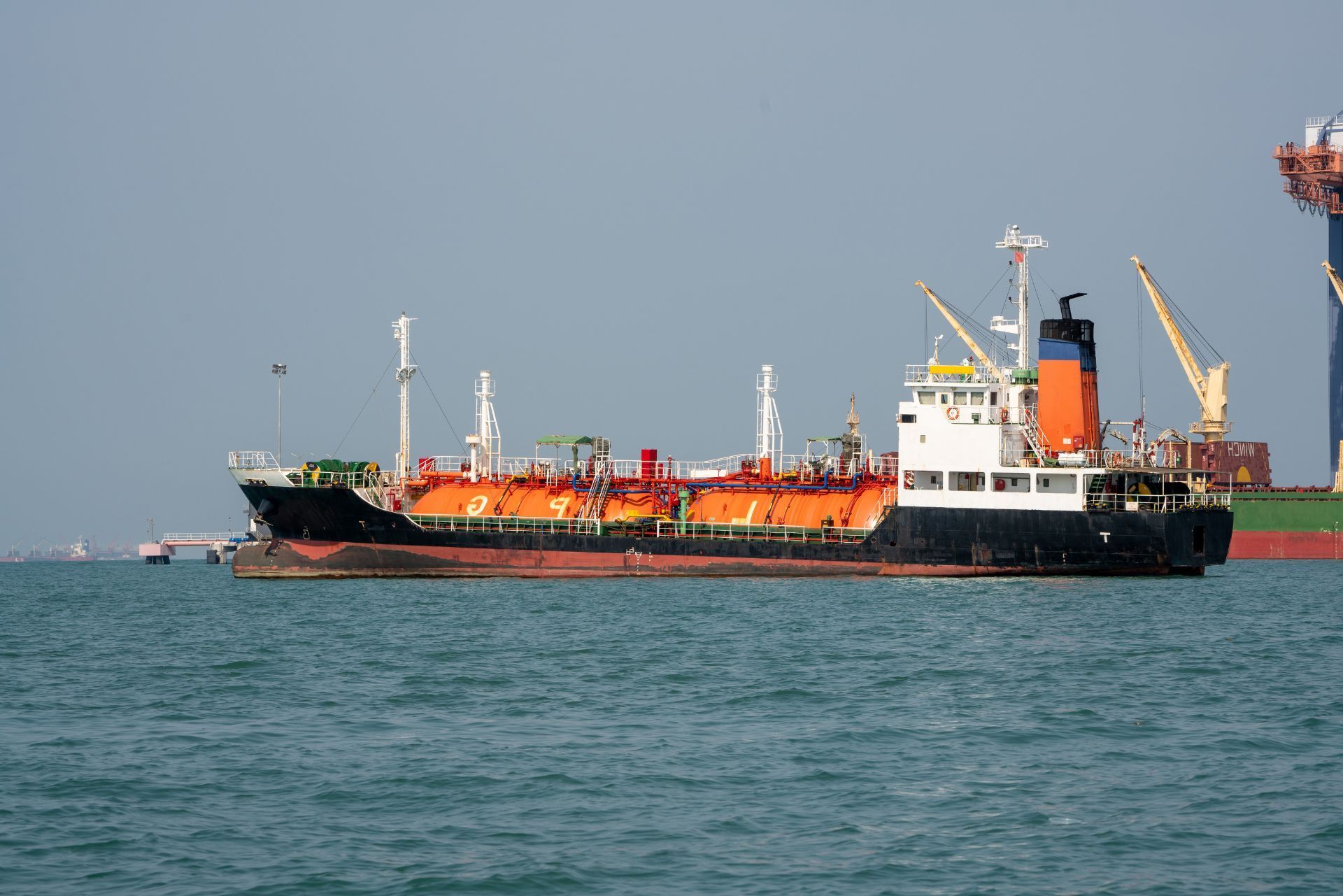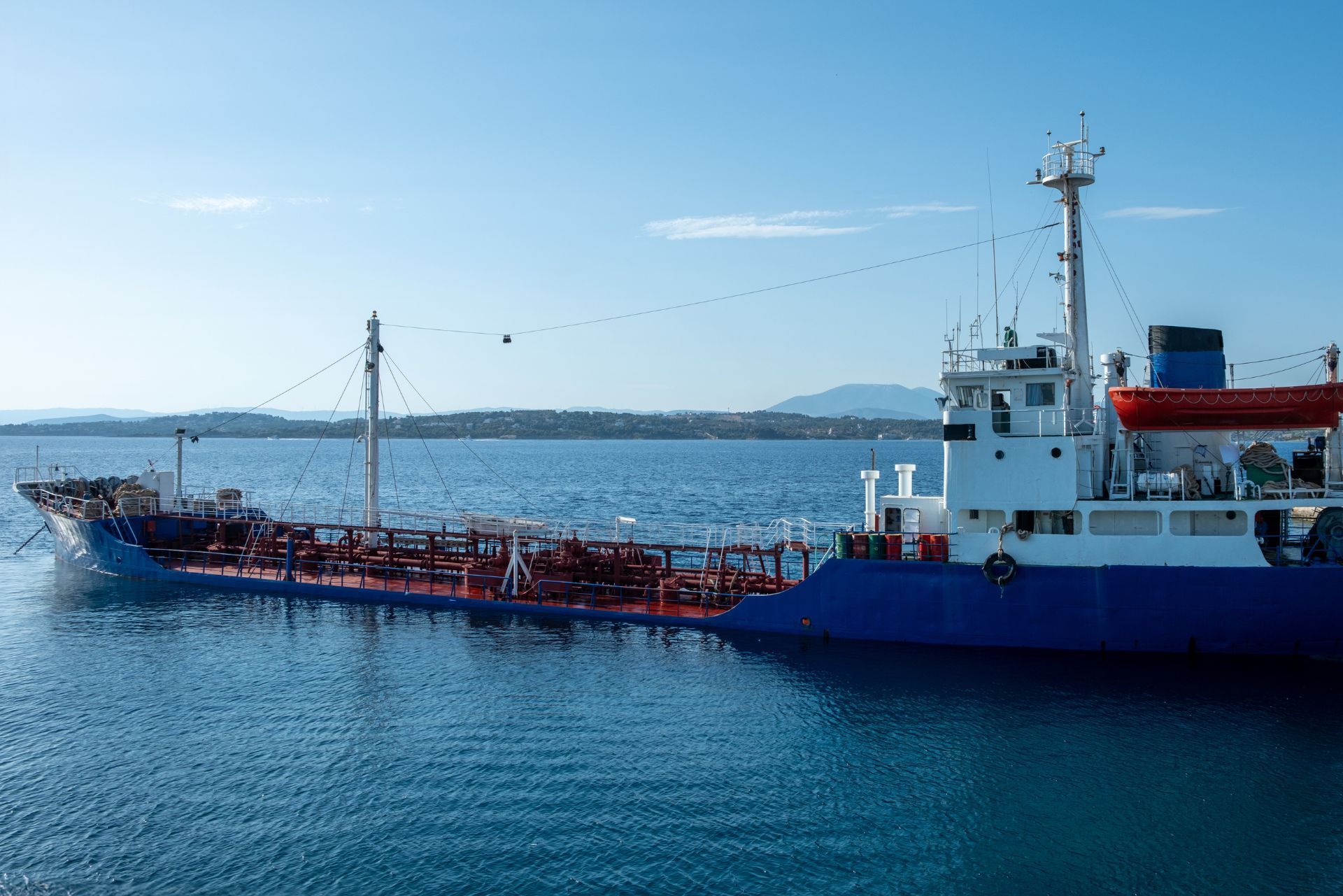Top 3 Recommended Policies

In the complex world of maritime fuel supply, the role of insurance for marine bunker fuel suppliers is becoming increasingly critical. With evolving environmental regulations, fluctuating market margins, and quality control challenges, suppliers face a range of risks that can impact their operations and profitability. This comprehensive guide explores the essentials of marine bunker fuel supplier insurance, helping stakeholders understand why it’s indispensable and what factors influence coverage in today’s dynamic market.
As the marine fuel industry navigates tighter carbon rules and economic uncertainties, suppliers must be prepared for both operational and regulatory risks. For instance, the International Energy Agency (IEA) highlights that global marine fuel demand is expected to stagnate through 2030 due to stricter environmental policies and a sluggish economy, which directly affects supplier margins and risk exposure. Read more on the IEA’s report.
Understanding the Risks Faced by Marine Bunker Fuel Suppliers
Marine bunker fuel suppliers operate in a high-stakes environment where risks range from product quality issues to financial pressures and regulatory compliance challenges. One significant concern is fuel quality. In 2024, 5.4% of very low sulfur fuel oil samples failed quality tests globally, with off-spec rates reaching 11.9% in Europe and 7% in North America. Such discrepancies can lead to safety risks for vessels and potential litigation for suppliers.
Moreover, a 2023 study found that 7% of sampled very low sulfur fuel oil in the Mediterranean failed to meet ISO 8217 specifications due to catalytic fines, which can harm engine performance and increase liability risks for suppliers. These quality control issues underscore the importance of having robust insurance coverage to mitigate financial losses arising from claims related to off-spec fuel delivery. Learn more about fuel quality challenges.
Another challenge is fraud and discrepancies in fuel delivery documentation. Between 2019 and 2022, over 39% of bunker deliveries worldwide exhibited at least a 2% discrepancy between fuel content and the amounts listed on delivery paperwork, often due to water introduction. This kind of fraud not only impacts supplier revenues but also exposes them to reputational damage and legal disputes, making insurance coverage for such risks essential.
In addition to these challenges, marine bunker fuel suppliers must navigate the complexities of international regulations that govern emissions and fuel standards. The International Maritime Organization (IMO) has implemented stringent regulations, such as the 2020 sulfur cap, which limits the sulfur content in marine fuels to 0.5%. Compliance with these regulations requires suppliers to invest in advanced testing and monitoring technologies to ensure their products meet the necessary standards. Failure to comply can result in hefty fines and sanctions, further complicating the already challenging operational landscape for suppliers.
Furthermore, the volatility of global oil prices adds another layer of risk. Fluctuations in crude oil prices can significantly impact the cost of bunker fuels, affecting profit margins for suppliers. In recent years, geopolitical tensions and market disruptions have led to unpredictable pricing, forcing suppliers to adopt more sophisticated pricing strategies and risk management practices. This financial uncertainty necessitates a keen understanding of market dynamics and may require suppliers to engage in hedging activities to protect against price swings, thereby complicating their operational and financial planning.

Why Marine Bunker Fuel Supplier Insurance is Essential
Given the multifaceted risks, marine bunker fuel supplier insurance is designed to protect suppliers against financial losses stemming from product liability, environmental damage, contractual disputes, and operational interruptions. The low-margin nature of the bunker business further amplifies the need for comprehensive insurance solutions. Adrian Tolson, principal of 2050 Marine Energy, notes that bunker suppliers’ pre-tax net margins have tightened significantly, with some approaching break-even levels in 2024 compared to modest profits in previous years. This squeeze on profitability means that even minor claims or operational setbacks can have outsized impacts on supplier viability.
Insurance policies typically cover claims related to fuel contamination, delivery errors, and environmental spills, which are among the most common risks in the sector. Additionally, with the International Maritime Organization (IMO) poised to implement a carbon pricing mechanism aimed at achieving net-zero emissions by 2050, suppliers must also prepare for emerging regulatory liabilities. This evolving regulatory landscape increases the complexity and potential costs of compliance failures, making tailored insurance coverage a critical component of risk management. Details on IMO’s carbon pricing initiative.
Types of Coverage Relevant to Bunker Fuel Suppliers
Marine bunker fuel supplier insurance can encompass several types of coverage, including:
- Product Liability Insurance: Protects against claims arising from the supply of defective or contaminated fuel that causes damage to vessels or equipment.
- Environmental Liability Insurance: Covers costs related to pollution incidents, such as oil spills or contamination during fuel transfer operations.
- Contractual Liability Insurance: Addresses disputes arising from contractual breaches, including delivery shortfalls or quality discrepancies.
- Business Interruption Insurance: Provides financial protection against losses due to operational disruptions, such as supply chain delays or regulatory shutdowns.
Each policy can be customized to reflect the unique risk profile of the supplier, considering factors such as geographical operation zones, volume of sales, and client base. Moreover, as the maritime industry increasingly embraces digital technologies, the risks associated with cyber threats also come into play. Cyber insurance is becoming an essential consideration for bunker fuel suppliers, as breaches can lead to significant operational disruptions and financial losses. The integration of digital systems in logistics and supply chain management, while enhancing efficiency, also exposes suppliers to vulnerabilities that can be exploited by malicious actors.
Furthermore, the global nature of the bunker fuel market means that suppliers must navigate a complex web of international regulations and standards. This complexity not only heightens the risk of compliance failures but also necessitates a proactive approach to risk management. Suppliers must stay informed about changes in regulations, such as those related to sulfur emissions and fuel quality standards, to ensure they remain compliant and mitigate potential liabilities. As such, engaging with insurance providers who understand the nuances of the maritime industry and can offer specialized advice becomes increasingly important for bunker fuel suppliers aiming to safeguard their operations in a challenging economic landscape.
Market Trends Impacting Insurance Needs
The marine bunker fuel market is undergoing significant transformation, which directly influences insurance requirements. For example, in the first half of 2025, Singapore’s bunker fuel sales declined by 1% year-on-year, reaching 26.98 million metric tons. This downturn prompted suppliers to reduce barge operations due to weak profit margins, highlighting the financial pressures faced by the industry. The decline in sales not only affects the immediate revenue streams for suppliers but also raises concerns about the long-term sustainability of operations within a market that is increasingly competitive and volatile.
Such market contractions increase the likelihood of claims related to operational disruptions and contractual disputes, making insurance an even more vital safeguard. Furthermore, Kenneth Dam, global head of bunkering at TFG Marine, predicts that the bunker market will become “completely different” in the coming years, with buyers needing to adopt more strategic refueling plans. This shift suggests that suppliers must also adapt their insurance strategies to cover new business models and emerging risks. As the market evolves, the need for tailored insurance solutions that address specific operational challenges becomes paramount. Insights on the bunker market evolution.
Environmental Regulations and Compliance Risks
One of the most significant drivers of change in the marine fuel sector is the tightening of environmental regulations. The IMO’s upcoming carbon pricing mechanism, expected to be finalized in October 2025, aims to accelerate the shipping industry’s transition to net-zero emissions by 2050. This regulatory push will likely increase compliance costs and expose suppliers to new liabilities if they fail to meet emission standards or supply compliant fuels. The implications of these regulations extend beyond immediate financial burdens; they also necessitate a comprehensive reevaluation of operational practices and supply chain management to ensure adherence to evolving standards.
Insurance products are evolving to address these emerging risks, offering coverage for fines, penalties, and remediation costs associated with environmental breaches. Suppliers who proactively align their operations with regulatory requirements and secure appropriate insurance will be better positioned to navigate this complex landscape. Additionally, the introduction of green insurance policies, which incentivize environmentally friendly practices, is gaining traction. These policies not only provide financial protection but also encourage suppliers to invest in cleaner technologies and sustainable practices, fostering a culture of responsibility within the industry. As the marine fuel sector adapts to these changes, the interplay between regulatory compliance and insurance will be crucial in shaping the future of operations.
Challenges in Fuel Quality and Their Insurance Implications
Fuel quality remains a persistent challenge in the marine bunker industry, with direct implications for insurance claims and coverage. The presence of catalytic fines and other contaminants in very low sulfur fuel oil can cause engine damage and operational failures, leading to costly claims. The 2024 failure rate of 5.4% in very low sulfur fuel oil samples globally, and higher rates in Europe and North America, illustrate the scale of this issue. Such failures not only disrupt operations but can also lead to significant downtime, which translates into lost revenue and increased operational costs for shipping companies.
Insurance providers often require rigorous quality assurance processes and documentation from suppliers to mitigate these risks. Failure to maintain stringent quality controls can result in denied claims or increased premiums. Therefore, investing in quality management systems not only reduces operational risks but also supports favorable insurance terms. Moreover, the implementation of advanced fuel testing technologies, such as spectrometry and chromatographic analysis, can provide real-time insights into fuel quality, enabling companies to address potential issues before they escalate into serious problems.
Additionally, discrepancies in fuel quantity and quality, such as the 39% incidence of delivery mismatches reported between 2019 and 2022, expose suppliers to fraud-related claims. Insurance policies that cover such risks help protect suppliers from financial losses due to fuel adulteration or misrepresentation by third parties. Explore the impact of fuel market fraud. The financial implications of these discrepancies can be staggering, with estimates suggesting that the marine industry could be losing billions annually due to fraudulent practices. This highlights the necessity for enhanced regulatory oversight and the adoption of best practices in fuel procurement and delivery.
Furthermore, the environmental implications of poor fuel quality cannot be overlooked. Contaminated fuels not only lead to increased emissions but also contribute to the deterioration of marine ecosystems. As regulatory bodies tighten emissions standards, the pressure on shipping companies to comply with environmental regulations intensifies. This creates a dual challenge: ensuring fuel quality while also navigating the complexities of compliance. Insurance policies that encompass environmental liabilities are becoming increasingly important, as they provide a safety net for companies facing potential fines or remediation costs associated with environmental damage caused by fuel quality issues.

Best Practices for Managing Insurance and Risk
To maximize the benefits of marine bunker fuel supplier insurance, companies should adopt a proactive approach to risk management. This includes:
- Comprehensive Risk Assessment: Regularly evaluate operational, financial, and regulatory risks to identify insurance needs accurately.
- Quality Control Systems: Implement robust testing and verification procedures to ensure fuel compliance with ISO standards and minimize claims.
- Contractual Clarity: Clearly define responsibilities and liabilities in supply agreements to reduce disputes and facilitate smoother claims processes.
- Strategic Insurance Partnerships: Work with insurers experienced in marine fuel risks to tailor coverage that aligns with business models and market conditions.
By integrating these practices, suppliers can reduce their exposure to costly incidents and create a more resilient business framework. Furthermore, it is essential for companies to stay informed about industry trends and emerging risks. Regular training sessions for staff on risk management practices can enhance awareness and preparedness, ensuring that everyone involved understands their role in mitigating risks effectively. Additionally, leveraging data analytics can provide insights into potential vulnerabilities, allowing for more informed decision-making and strategic planning.
Preparing for Future Market Dynamics
As the marine bunker market evolves, suppliers must anticipate changes in demand, regulatory frameworks, and customer expectations. The stagnation of global marine fuel demand projected by the IEA through 2030 means suppliers will face intensified competition and margin pressures. Insurance strategies should therefore be flexible, accommodating shifts in operational scale and risk profiles.
Moreover, emerging technologies and alternative fuels may introduce new risks and opportunities. Suppliers exploring these avenues should engage with insurers early to understand coverage implications and ensure continuous protection. For instance, the rise of biofuels and LNG as viable alternatives to traditional bunker fuels necessitates a reevaluation of existing insurance policies to cover unique risks associated with these fuels, such as environmental impacts and regulatory compliance. Additionally, as digital transformation permeates the industry, cybersecurity risks become increasingly pertinent. Suppliers must consider how their insurance policies address potential data breaches and cyberattacks, ensuring they are safeguarded against these evolving threats.
Conclusion: Securing the Future with Robust Insurance
Marine bunker fuel supplier insurance is no longer optional—it is a strategic necessity in an industry marked by stringent environmental regulations, quality challenges, and economic pressures. With documented quality failures, market contractions, and evolving regulatory landscapes, suppliers must protect themselves against a broad spectrum of risks.
By understanding the types of coverage available, staying abreast of market trends, and implementing strong risk management practices, marine bunker fuel suppliers can safeguard their operations and maintain competitive advantage. As the industry moves toward a greener and more regulated future, insurance will be a cornerstone of sustainable success.
For those interested in the latest market insights and regulatory developments, resources such as the
Marine Bunker Oil Market Size & Share Trends report provide valuable data to inform strategic decisions.
Contact Us
Phone
Location
9595 Six Pines Dr, Suite 8210, The Woodlands, TX 77380

